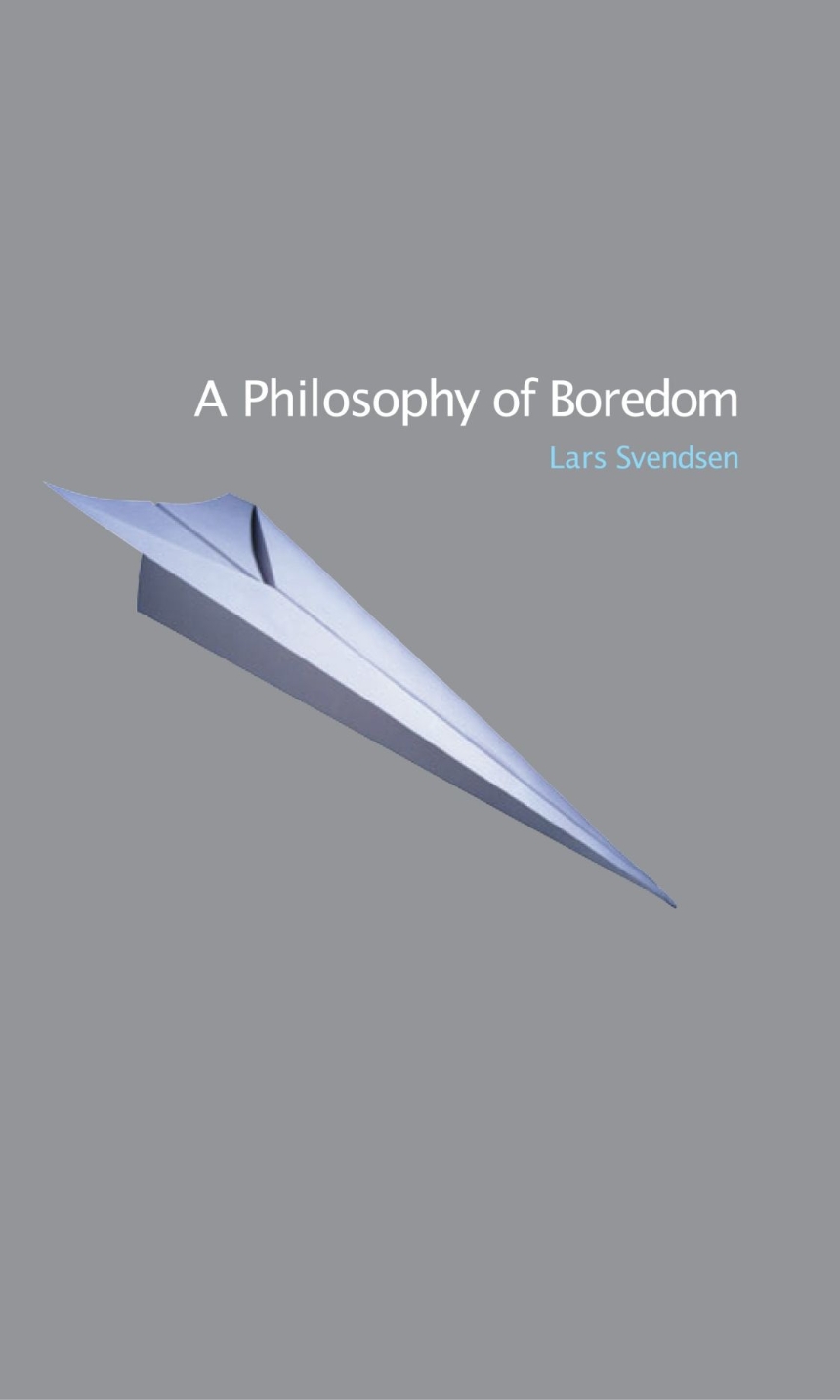Distributed for Reaktion Books
A Philosophy of Boredom
It has been described as a "tame longing without any particular object" by Schopenhauer, "a bestial and indefinable affliction" by Dostoevsky, and "time’s invasion of your world system" by Joseph Brodsky, but still very few of us today can explain precisely what boredom is. A Philosophy of Boredom investigates one of the central preoccupations of our age as it probes the nature of boredom, how it originated, how and why it afflicts us, and why we cannot seem to overcome it by any act of will.
Lars Svendsen brings together observations from philosophy, literature, psychology, theology, and popular culture, examining boredom’s pre-Romantic manifestations in medieval torpor, philosophical musings on boredom from Pascal to Nietzsche, and modern explorations into alienation and transgression by twentieth-century artists from Beckett to Warhol. A witty and entertaining account of our dullest moments and most maddening days, A Philosophy of Boredom will appeal to anyone curious to know what lies beneath the overwhelming inertia of inactivity.
Lars Svendsen brings together observations from philosophy, literature, psychology, theology, and popular culture, examining boredom’s pre-Romantic manifestations in medieval torpor, philosophical musings on boredom from Pascal to Nietzsche, and modern explorations into alienation and transgression by twentieth-century artists from Beckett to Warhol. A witty and entertaining account of our dullest moments and most maddening days, A Philosophy of Boredom will appeal to anyone curious to know what lies beneath the overwhelming inertia of inactivity.
192 pages | 4 3/4 x 8 | © 2005
Anthropology: Cultural and Social Anthropology
Philosophy: General Philosophy
Reviews
Table of Contents
Preface
One: The Problem of Boredom
—Boredom as a Philosophical Problem
—Boredom and Modernity
—Boredom and Meaning
—Boredom, Work and Leisure
—Boredom and Death
—Typologies of Boredom
—Boredom and Novelty
Two: Stories of Boredom
—Acedia: Pre-modern Boredom
—From Pascal to Nietzsche
—Romantic Boredom, form William Lovell to American Psycho
—On Boredom, Body, Technology and Transgression: Crash
—Samuel Beckett and the Impossibility of Personal Meaning
—Andy Warhol: Renouncing Personal Meaning
Three: The Phenomenology of Boredom
—On Attunement
—Ontology: The Hermeneutics of Boredom
Four: The Ethics of Boredom
—What is an I?
—Boredom and Human History
—The Experience of Boredom
—Boredom and Maturity
Postscript
References
One: The Problem of Boredom
—Boredom as a Philosophical Problem
—Boredom and Modernity
—Boredom and Meaning
—Boredom, Work and Leisure
—Boredom and Death
—Typologies of Boredom
—Boredom and Novelty
Two: Stories of Boredom
—Acedia: Pre-modern Boredom
—From Pascal to Nietzsche
—Romantic Boredom, form William Lovell to American Psycho
—On Boredom, Body, Technology and Transgression: Crash
—Samuel Beckett and the Impossibility of Personal Meaning
—Andy Warhol: Renouncing Personal Meaning
Three: The Phenomenology of Boredom
—On Attunement
—Ontology: The Hermeneutics of Boredom
Four: The Ethics of Boredom
—What is an I?
—Boredom and Human History
—The Experience of Boredom
—Boredom and Maturity
Postscript
References

